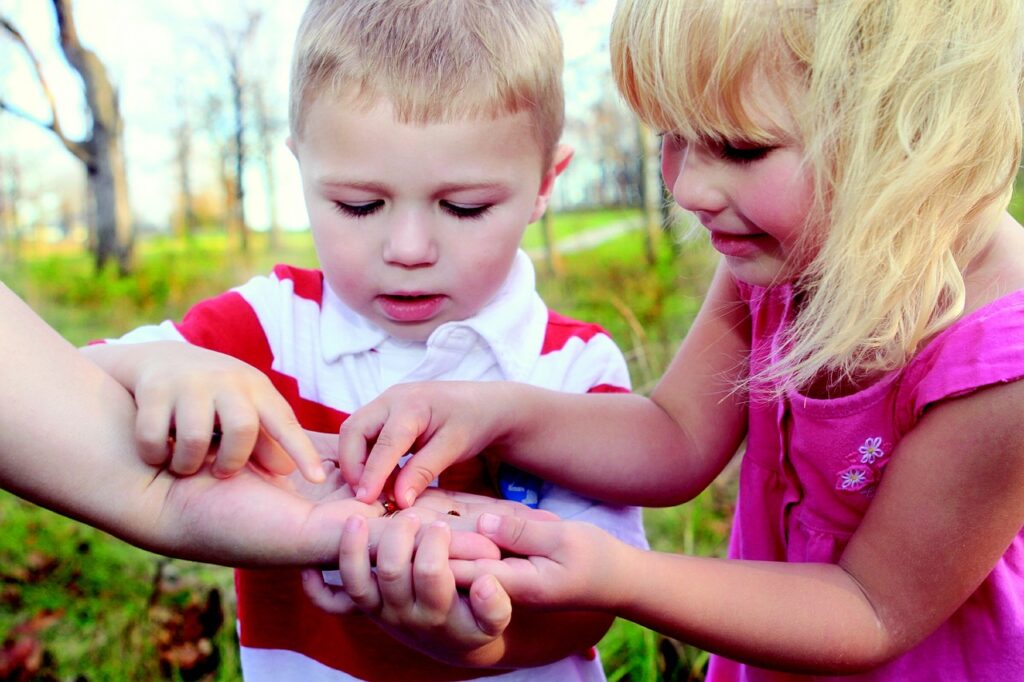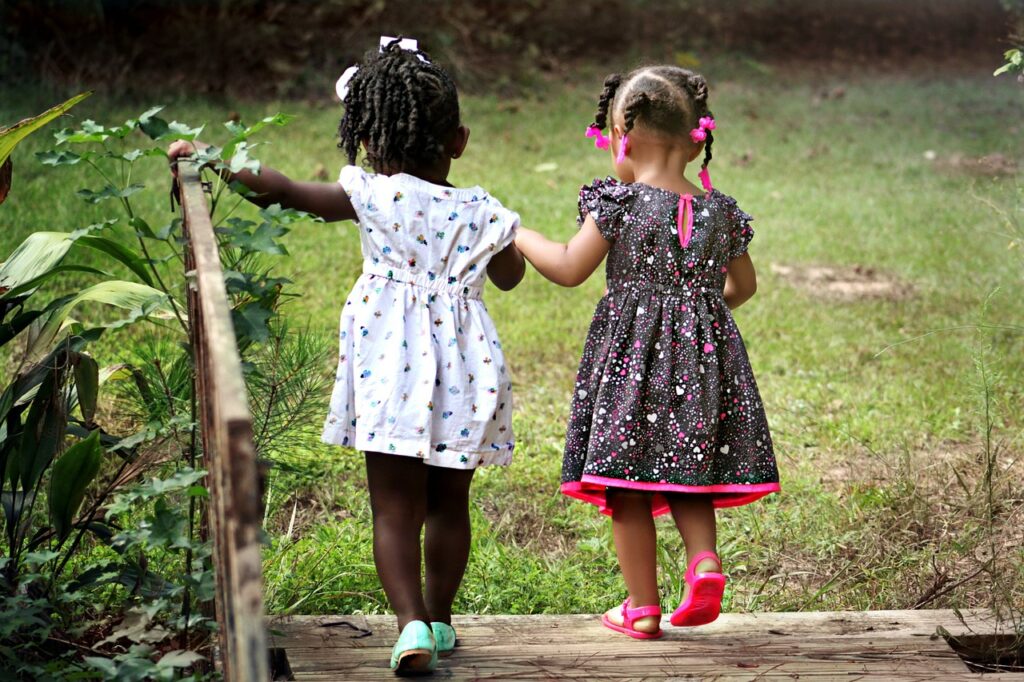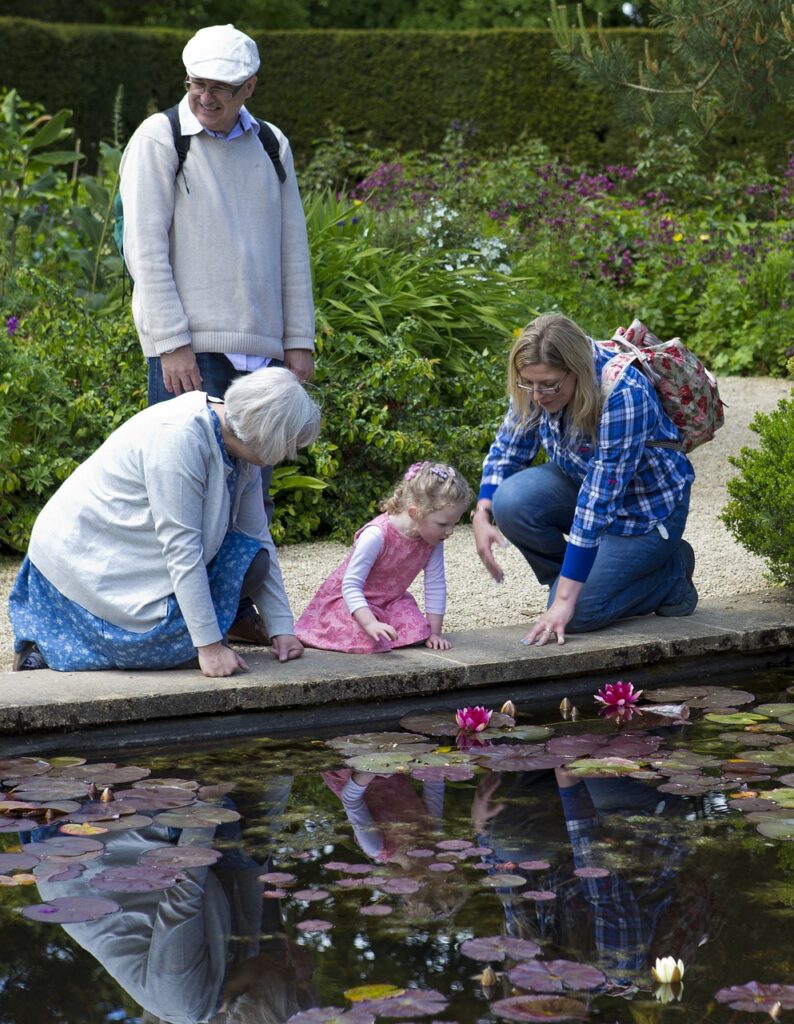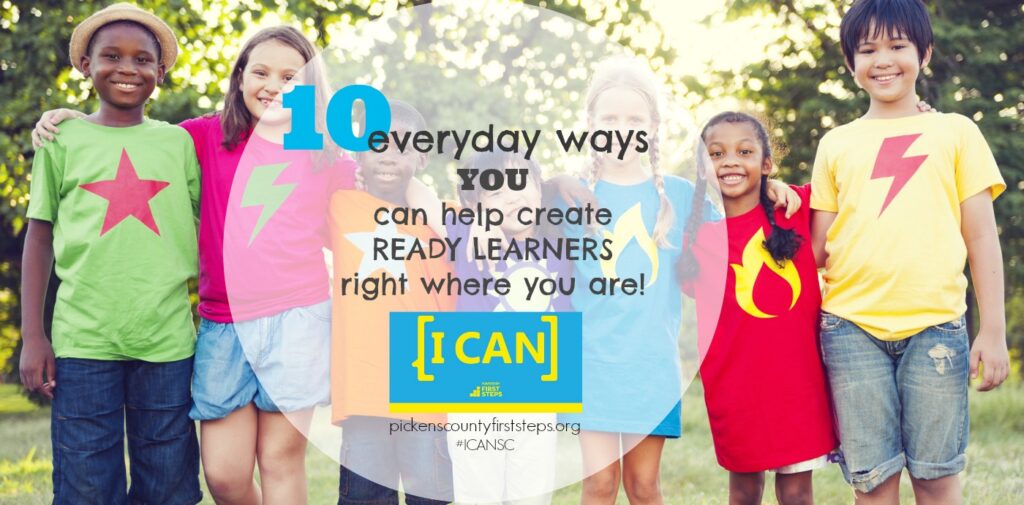School readiness can feel overwhelming. But we hope you’re beginning to see that school readiness and life readiness go hand in hand!
Loving your kids by providing a safe home, keeping them healthy, reading together, and establishing simple routines are all part of a school readiness foundation.
Involvement in the lives of young children in your community, through your church or neighborhood, is another building block in the readiness foundation.
But it’s also helpful to know specific ways that we can send our children to school prepared. In this short series, we’ve covered fine motor skills, gross motor skills, math, and literacy. {We’ll link to all the posts at the end.}
This is the fifth and final post of the “I CAN be Ready for School” series. We’ll talk about the importance of “learning readiness” and “social readiness.” While traditional academic components like letters, numbers, math, and motor skills are important, if a child isn’t prepared to learn or can’t relate well with others, these struggles will get in the way of academics.
Here are 3 tips for cultivating inquiry and social / emotional health in your young child before they begin school:
1. Be patient with all the questions young children ask, knowing that healthy curiosity is key for lifelong learning.
When you encourage questions and engagement with the world, kids blossom into the born learners they naturally are. They become problem-solvers, they make connections, they’re more attentive and observant.
Capitalize on this energetic stage of development. It’s a crucial readiness component, creating kids who approach learning with enthusiasm.
The never-ending “why” questions throughout the day, the fascination with a bug that’s creeping along the sidewalk, the many observations about “mundane” things adults find uninteresting — this is part of the wonder of childhood. It’s a beautiful time in a young person’s life. Appreciate the wonderful stage that it is!
Remember, children learn through questions, observation, and practice. What may feel like annoyance to you is actually building healthy brain development and fueling a spirit that’s eager to learn.

Encourage their curiosity through:
Spending time outside
Reading books
Asking follow-up questions
Making simple connections to the world around them
2. Use everyday environments to help develop social skills.
Kindergarten is a huge social adjustment for most children. Not only are they adapting to routines and learning all sorts of new information, they’re learning within a social environment that’s unfamiliar.

Skills like sharing, cooperation, and self-control don’t usually come naturally to children. Make the most of everyday opportunities, whether at home with siblings or at the park with friends, to teach your child how to:
Share
Cooperate
Practice self-control
Follow simple directions {“Put on your shoes then grab your cup.”}
Express emotions with words instead of aggression
Persevere when they’re frustrated
These are not easy skills for young children to acquire and it’s difficult, as parents and caregivers, to be patient as our young children are learning how to share and practice self-control. Remind yourself that it’s a messy, imperfect process. These are learned behaviors and they take time. It’s okay for all of you to feel frustrated as your child is maturing!
But it’s crucial that our children learn. Otherwise they grow up into older children {and even adults} who struggle to exercise self-control. We need look no further than the evening news to understand that these school readiness skills are actually life readiness skills too.
3. Hang out with different ages and stages.

While it’s important for young children to learn how to play and learn with children their own age, it’s also important that they learn how to relate to familiar adults — parents, teachers, caregivers, and senior citizens. Use opportunities within extended family gatherings or within your faith community to teach children how to look adults in the eyes, how to respond with kindness and respect, how to use simple manners like “Thank you” and “Nice to meet you.”
These may not seem like school readiness skills but they absolutely are. Children need to learn how to appreciate and honor those who lead them and who have come before them. When children observe parents who model these same attributes, they’re more likely to be respectful and appreciative as well.
/////
Readiness is not simply a checklist of skills. It’s a foundation for life and we all have a part to play — parents and caregivers, schools and churches, teachers and coaches.
Don’t take for granted the countless everyday ways you can engage with the young children around you and prepare them for school and for life! From read-aloud time and simple routines to playing outside and practicing letters, getting kids ready for school can be part of everyday rhythms.
But it does take intention. Knowing what young children need is where readiness begins, and that’s why First Steps is here to help.
Below are all of the posts in the “[I CAN] be ready for school” series. We hope these encourage you in practical ways and that you’ll share our content with those in your life who are parenting or providing care for young children. It’s a simple way to contribute to the school readiness of all the children in your community!
“[I CAN] Be Ready for School” Series
7 Everyday Ways to Build a Literacy Foundation
5 Everyday Ways to Get Ready for Math
10 Everyday Ways to Develop Gross Motor Skills in Your Young Child
10 Simple Ways to Develop Fine Motor Skills in Your Young Child
Click here to learn more about South Carolina’s “Profile of the Ready Kindergartener.”

/////
If you’d like to know everyday ways that you can nurture the young children and their families in your life, subscribe to our blog where we provide FREE tips and everyday encouragement! {You can do that in the top right sidebar of the blog.}
You can also stay up with the latest resources and everyday tips through Facebook, Twitter, and Pinterest.

